
Vertical and Urban Farming use innovative techniques like hydroponics and aeroponics to grow crops efficiently in cities. These methods save space, reduce water consumption, and offer fresh produce year-round. This blog explores their benefits, challenges, and future potential in addressing food security and sustainable agriculture.
Read More
Climate-Resilient Crops: Ensuring Food Security in a Changing Climate are crucial for sustainable agriculture. Technologies like soil moisture sensors, AI-based irrigation, and drip irrigation enhance efficiency and reduce waste. Research focuses on advanced sensors, climate adaptation, and renewable energy integration. IJOEAR supports global research, providing a platform for innovative water management solutions to improve farming practices.
Read More
Water conservation and smart irrigation systems are crucial for sustainable agriculture. Technologies like soil moisture sensors, AI-based irrigation, and drip irrigation enhance efficiency and reduce waste. Research focuses on advanced sensors, climate adaptation, and renewable energy integration. IJOEAR supports global research, providing a platform for innovative water management solutions to improve farming practices.
Read More
Environmental science is crucial for addressing global challenges like climate change, pollution, and biodiversity loss. This blog explores trending research topics, including renewable energy, water conservation, sustainable agriculture, and waste management. Stay informed about scientific solutions that contribute to environmental sustainability and a greener planet.
Read More
Precision agriculture leverages technology to improve farming efficiency while minimizing waste. Using GPS, AI, and real-time data analysis, farmers can optimize crop production, reduce chemical use, and enhance sustainability. This blog explores how precision farming is revolutionizing agriculture, making it more productive and environmentally friendly.
Read More
Regenerative agriculture focuses on restoring soil health, increasing biodiversity, and improving farm resilience. By using techniques like cover cropping, no-till farming, and organic fertilization, farmers can enhance productivity while protecting the environment. This blog explores how regenerative practices increase farm profitability and contribute to sustainable agriculture.
Read More
Agricultural research is evolving with cutting-edge topics such as precision farming, climate-smart agriculture, biotechnology, and sustainable crop management. Scientists are developing new ways to enhance productivity while preserving natural resources. This blog highlights the top research trends that are shaping the future of farming and ensuring global food security.
Read More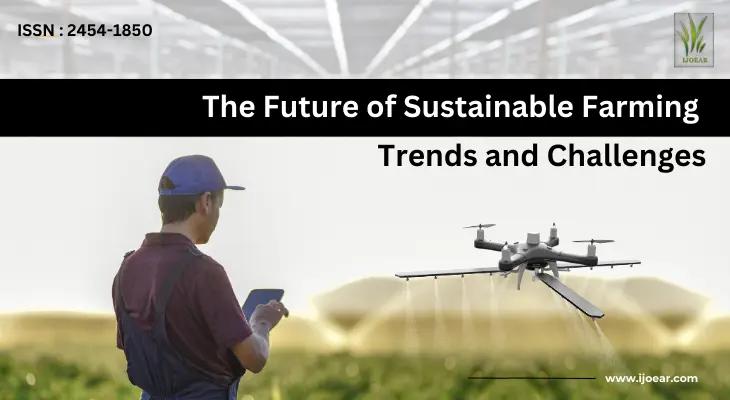
Sustainable farming is the future of agriculture, focusing on eco-friendly solutions, climate-smart techniques, and efficient resource use. Challenges like climate change, soil degradation, and water scarcity require innovative strategies. IJOEAR plays a key role by publishing high-quality research, helping farmers, scientists, and policymakers implement sustainable agricultural practices for a greener future.
Read More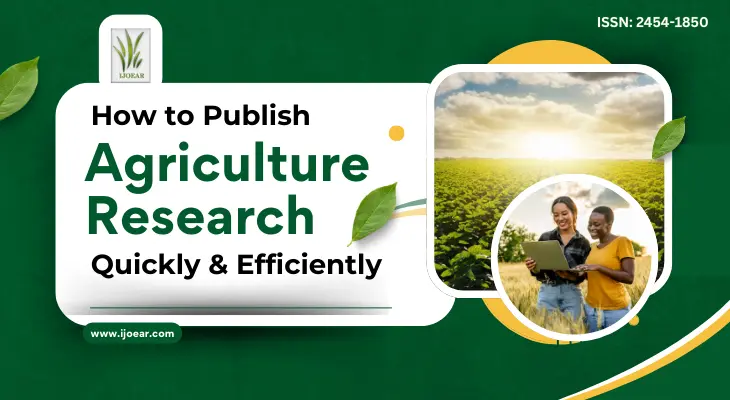
Publishing agricultural research quickly requires strategic journal selection, proper manuscript formatting, and understanding fast-track review options. This guide covers tips for speeding up your publication process, choosing the right journals, and avoiding common submission mistakes.
Read More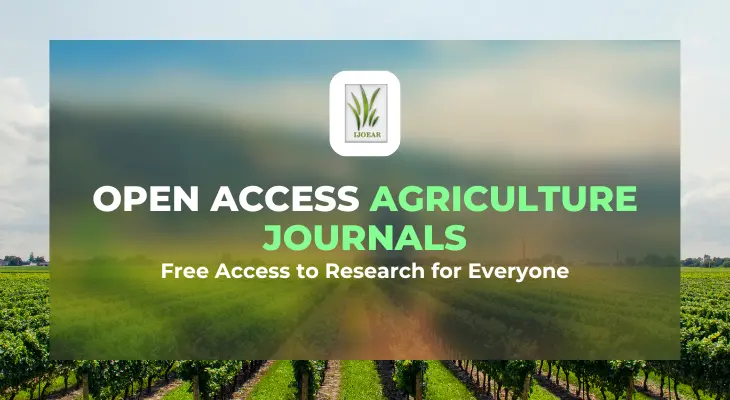
Open-access agriculture journals offer free, unrestricted access to valuable research, helping scientists, students, and policymakers stay updated on agricultural advancements. These journals promote global knowledge sharing, faster innovation, and higher citations for authors.
Read More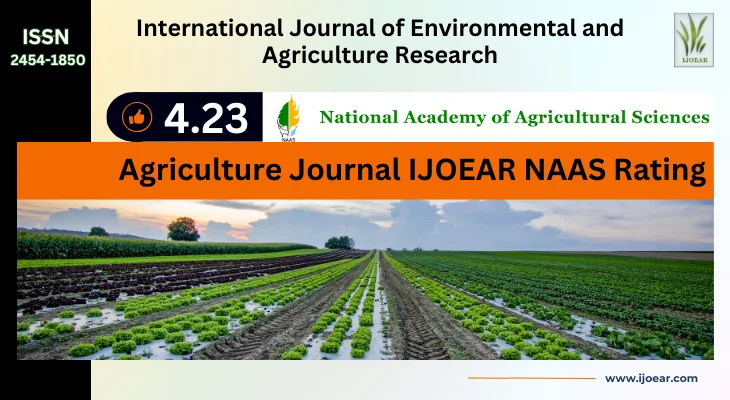
IJOEAR proudly announces its NAAS Rating of 4.23, recognizing excellence in agricultural research publishing. This rating reflects originality, rigorous peer review, and global impact, enhancing the credibility and visibility of published research.
Read More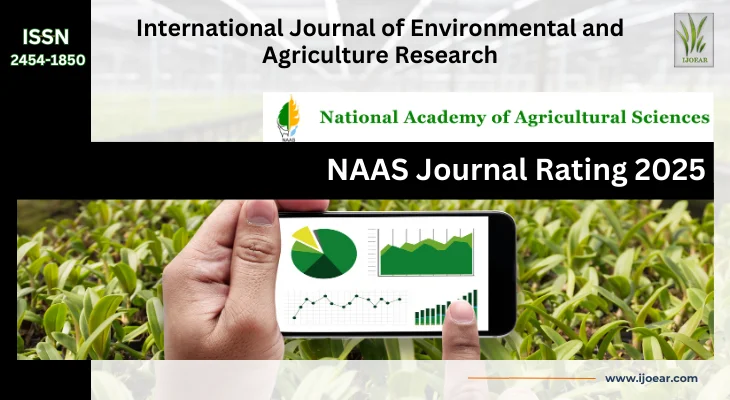
The NAAS Journal Rating 2025, released by the National Academy of Agricultural Sciences, serves as a trusted benchmark for evaluating agricultural research journals, helping researchers choose credible platforms to enhance their work's impact.
Read More
The NAAS score evaluates agricultural research journals based on originality, scientific quality, and impact. This transparent system ensures researchers publish in journals that meet high academic and professional standards.
Read More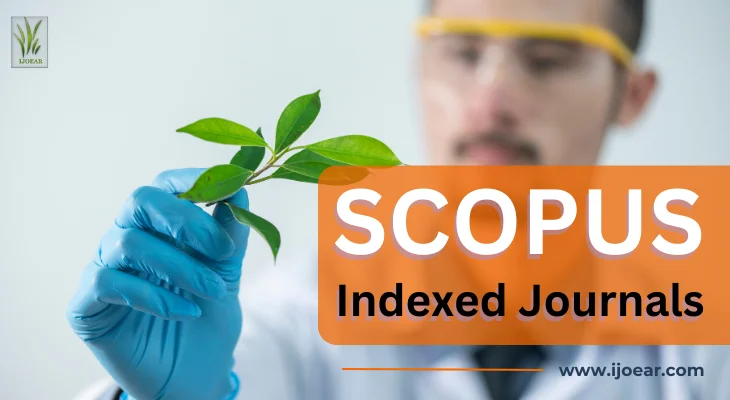
Scopus is a leading database that indexes high-quality research publications. Publishing in Scopus-indexed journals enhances credibility, ensuring peer-reviewed, impactful contributions in agriculture, environment, and food science.
Read More